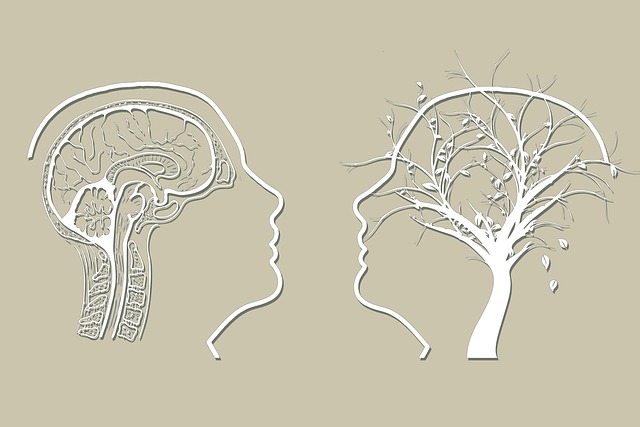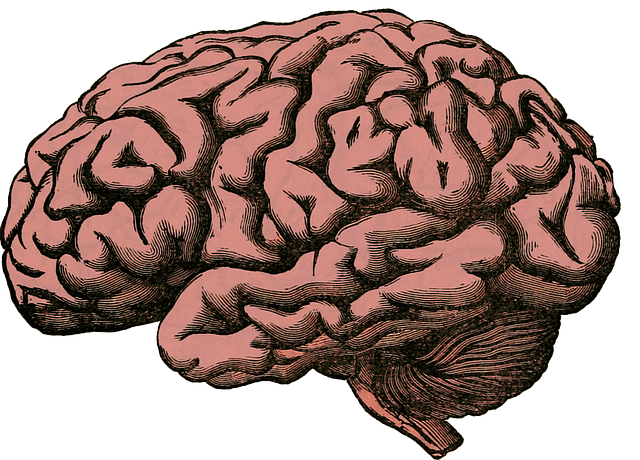Mental wellness, a holistic concept encompassing thoughts, feelings, and behaviors, is crucial in today's fast-paced world. Self-assessment tools from organizations like Lakewood Codependency Therapy are vital for personal growth, trauma recovery, and burnout prevention. These resources help individuals understand emotional states and thought patterns, boosting confidence in relationships. With a growing need for accessible mental health resources, specialized therapy programs and initiatives like the Mental Wellness Podcast Series focus on codependency awareness. Effective self-assessment tools for mental wellness are designed through nuanced processes that consider various factors, integrating evidence-based techniques to enhance insights for personal growth. Lakewood Codependency Therapy leverages cognitive-behavioral therapy (CBT), mindfulness, and dialectical behavior therapy (DBT) for tailored interventions. Pilot testing is essential for refining these resources, ensuring cultural sensitivity, and encouraging honest engagement for improved mental health outcomes.
Mental wellness self-assessment tools play a crucial role in fostering individual growth and understanding. This article explores the development of such tools, highlighting key aspects like understanding mental wellness, identifying the need for Lakewood Codependency Therapy, designing effective assessments, incorporating evidence-based practices, and refining through pilot testing. By delving into these sections, readers gain insights into creating comprehensive self-assessment resources that promote holistic mental health awareness and support.
- Understanding Mental Wellness and Self-Assessment
- Identifying the Need for Lakewood Codependency Therapy
- Designing Effective Assessment Tools
- Incorporating Evidence-Based Practices
- Pilot Testing and Refinement
Understanding Mental Wellness and Self-Assessment

Mental wellness is a holistic concept encompassing emotional, psychological, and social well-being. It’s about recognizing and managing our thoughts, feelings, and behaviors to lead fulfilling lives. Understanding mental wellness involves acknowledging that it’s not just the absence of illness but also the presence of resilience, adaptability, and positive coping mechanisms.
Self-assessment tools play a pivotal role in promoting mental wellness by enabling individuals to gain insights into their emotional states and thought patterns. These tools can be particularly beneficial for those seeking personal growth, recovering from trauma (Trauma Support Services), or aiming to prevent burnout (Burnout Prevention Strategies for Healthcare Providers). For instance, Lakewood Codependency Therapy offers self-assessment resources that help individuals identify unhealthy relationship dynamics and boost their confidence (Confidence Boosting) in navigating interpersonal interactions.
Identifying the Need for Lakewood Codependency Therapy

In today’s fast-paced world, mental wellness is a cornerstone of overall health and well-being. However, many individuals struggle with codependency issues, often left undiagnosed and untreated. This is where Lakewood Codependency Therapy steps in as a crucial resource for those seeking support. Codependency, characterized by unhealthy relationships and a lack of personal boundaries, can lead to significant emotional distress and impact various aspects of life. Recognizing this growing need, therapists in the Lakewood area have developed specialized therapy programs tailored to address codependency and its associated challenges.
The integration of Lakewood Codependency Therapy into mental health services is vital, considering the widespread prevalence of depression prevention and trauma support services required by individuals seeking holistic healing. Furthermore, with the increasing demand for accessible resources, a Mental Wellness Podcast Series Production focused on codependency awareness can complement traditional therapy. These innovative approaches not only cater to diverse learning styles but also promote mental wellness on a broader scale, ensuring that folks have access to the tools they need to navigate and overcome codependency-related issues.
Designing Effective Assessment Tools

Designing effective mental wellness self-assessment tools is an intricate process that requires careful consideration of various factors. These tools play a pivotal role in empowering individuals to take charge of their emotional well-being, especially when seeking guidance from professionals like those at Lakewood Codependency Therapy. The primary goal is to create assessments that are not only comprehensive but also user-friendly and accessible.
A successful mental wellness assessment should be able to capture the nuances of an individual’s emotional state, including their coping mechanisms, stress triggers, and underlying beliefs. Incorporating elements from Emotional Healing Processes and Compassion Cultivation Practices can enhance these tools’ effectiveness. By integrating evidence-based techniques, such as mindfulness exercises or cognitive reframing questions, into the assessment framework, users can gain deeper insights into their mental health landscape, fostering personal growth and self-awareness.
Incorporating Evidence-Based Practices

Incorporating evidence-based practices is a cornerstone in developing effective self-assessment tools for mental wellness. Techniques like cognitive-behavioral therapy (CBT), mindfulness, and dialectical behavior therapy (DBT) have proven success in promoting emotional well-being and fostering inner strength development. For instance, Lakewood Codependency Therapy leverages these methods to help individuals understand and modify unhealthy thought patterns and behaviors, thereby improving their mental health outcomes. By integrating such evidence-based approaches, self-assessment tools can provide accurate risk assessments for mental health professionals, enabling them to offer tailored interventions that address specific needs.
This strategic integration enhances the reliability and validity of the assessment tools, ensuring they accurately gauge various aspects of mental wellness. Moreover, it enables professionals to employ effective Emotional Well-being Promotion Techniques, catering to diverse populations with varied mental health challenges. Through rigorous research and clinical validation, these practices have shown promise in not only assessing risks but also enhancing recovery and resiliencies among those seeking support.
Pilot Testing and Refinement

Pilot testing is a crucial step in developing any self-assessment tool, especially for mental wellness resources like Lakewood Codependency Therapy. This process involves administering the assessment to a small group of participants who represent the target audience. By gathering feedback and analyzing results, therapists and developers can identify any potential issues or limitations in the tool. It allows for refining the questions, improving clarity, and ensuring cultural sensitivity, making it more effective and relevant for users’ needs.
Refinement is an iterative process, often requiring multiple cycles of testing and revision. Incorporating feedback from pilot testers, especially those with personal experiences in mental health and codependency, can lead to a more accurate and helpful assessment. This stage also emphasizes the importance of validity and reliability; ensuring that the tool measures what it intends to measure consistently and accurately. A well-refined assessment will enhance the overall user experience, encouraging individuals to engage honestly, fostering better self-awareness, and potentially preventing burnout through positive thinking and emotional intelligence development.
The development of mental wellness self-assessment tools, including the integration of Lakewood Codependency Therapy practices, is a vital step towards enhancing individual well-being. By combining evidence-based approaches with personalized assessments, these tools empower individuals to take control of their mental health journeys. Through pilot testing and continuous refinement, we can ensure that these resources are effective, accessible, and tailored to diverse needs. This process marks a significant contribution to the field, offering practical support for those seeking to improve their mental wellness.











